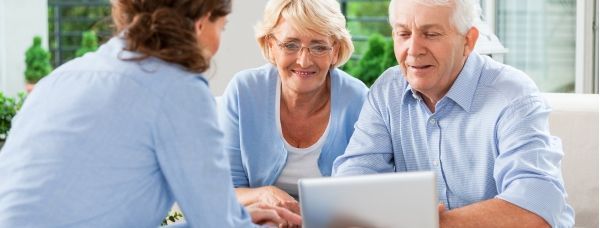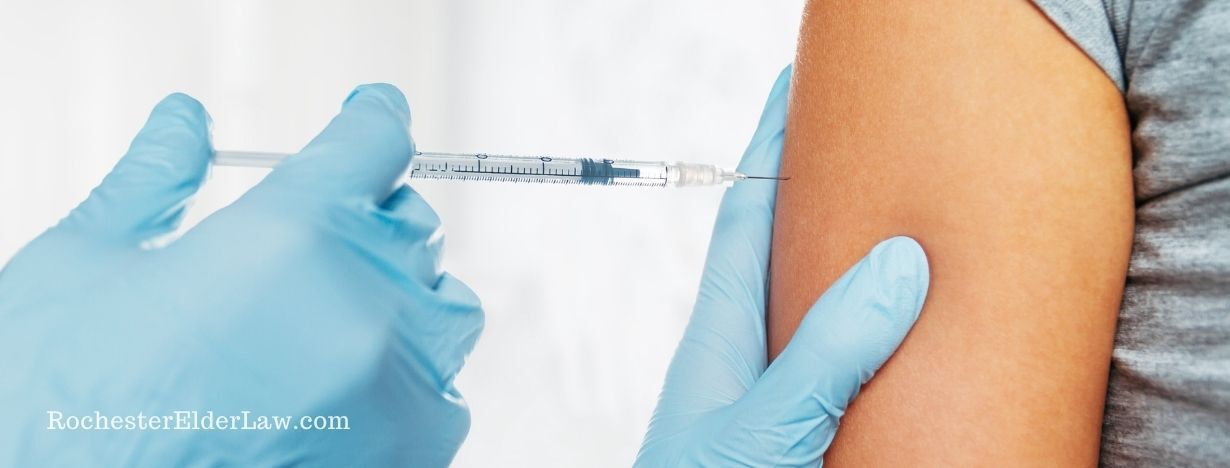
More and more of us are either receiving or becoming eligible to receive the COVID-19 vaccine. According to the medical community, vaccinated individuals are significantly less likely to contract COVID-19; however, they may pose a health risk to others. What then is appropriate behavior for vaccinated Americans when considering the health of others? For the moment, not much has changed.
First of all, experts have told us that the COVID-19 vaccines take at least two weeks from receiving the second dose (or the single dose of Johnson and Johnson) to build up your immune response. The Pfizer vaccine offers 95 percent efficacy, while the Moderna vaccine provides 94 percent efficacy, so you are highly resistant to COVID-19 but not completely immune. According to MarketWatch , Dr. Gregory Poland, infectious disease expert and director of the Mayo Clinic’s Vaccine Research Group in Rochester, Minnesota, the .9 percent difference in efficacy rates is “meaningless.” However, according to preliminary data, those who are vaccinated may still contract coronavirus though, they are more likely to be asymptomatic. In the same MarketWatch post, Dr. Thomas Russo, chief of infectious disease, University at Buffalo in New York, says, “… it’s not clear whether those vaccinated people would be able to pass it to others.” We are still in a time of great uncertainty regarding this pandemic.
There is a low risk of infection when socializing with other fully vaccinated individuals; however, most experts believe it will take months to achieve herd immunity as a nation. Herd immunity occurs when a large enough percentage of the population develops long-lasting immunity through naturally occurring infection resistance or vaccinations to a particular virus or disease.
Should you visit your local grandparent or other older relative now that you have the vaccine? Dr. Russo told MarketWatch if both you and your loved one are fully vaccinated, “the benefits of the visit will outweigh these small risks that they could have of developing a severe case of coronavirus.” The unprecedented rates of social isolation of the American elderly have taken a huge toll on their physical, mental, and emotional well-being. If you and your loved one have been fully vaccinated, make arrangements to meet safely.
The medical community speculates that a vaccination rate of 70 to 80 percent can bring about herd immunity in the US, but we are just beginning the nation’s vaccination journey. The advent of open borders and easing air travel restrictions from other countries continues to provide challenges. In the future, you might need to present a negative COVID-19 test to cross international borders. Currently, those Americans returning from Mexico must now meet this requirement before entering the US. The “slow the spread” protocols remain in place even though you are fully vaccinated.
Once you are fully vaccinated your way of life may not change for a while. It is still important to reach out to friends and loved ones who may still be suffering from feelings of isolation and/or depression. You may be able to visit a loved one in a care facility once you are fully vaccinated. And if you haven’t already, now is a great time to think about your future health, and to make sure you have the correct legal documents in place in case you are unable to make decisions due to illness or incapacity in the future. We would be happy to speak to you about what documents you should be thinking about, including a health care directive, living will, or other documents specific to your wishes and desires. If the past year has taught us anything, it is to expect the unexpected and plan accordingly. Contact us , we can help!
more news you can use



Still have questions?
Tell us about your situation.

Centrally Located in Brighton
near Cobbs Hill:
1399 Monroe Avenue,
Rochester, NY 14618
Map & Directions
Weekly News & Updates
Subscribe now and get our FREE Guide, "The Top Eight Mistakes People Make with Medicaid Qualification"
Rochester Elder Law
All Rights Reserved
Legal Disclaimer: We have organized and prepared this website to provide general information about our firm. Content is subject to change without notice. The material presented here is not legal advice and is not to be acted on as such. You should consult an attorney for advice regarding your individual situation. We invite you to contact us and welcome your calls, letters and electronic mail. Viewing this web site or contacting us does not create an attorney-client relationship. Please do not send any confidential information to us until such time as an attorney-client relationship has been established. This site may contain attorney advertising. However, prior results do not guarantee a similar outcome.







